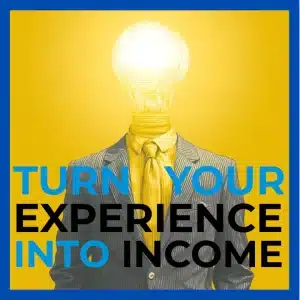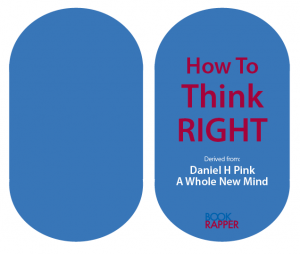 How to Think Right
How to Think Right
This is the Book Rapper version of Daniel Pink’s best selling book, A Whole New Mind. We’ve rewritten the book so you can grasp that big ideas in under 30 minutes. We called our issue: How to Think Right.
If you want our beautifully designed pdf copy click here. It includes audio and video files. Learn your preferred way!
The RAP
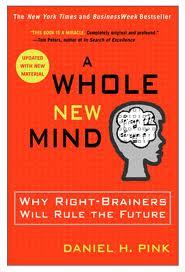 The Book
The Book
Daniel H Pink, A Whole New Mind, Allen and Unwin, Crows Nest, 2006
Summary
Logical, rational left-brain thinking is necessary yet no longer enough. The right brain skills of design, story telling, emotional empathy, the big picture, playfulness and creating meaning are the keys to success.
Book Rapper Says
Pink uses a great ‘right brain’ metaphor that is pulled together into several simple themes. The content is a good ‘symphony’ of what is going on and includes some entertaining ‘stories’. Daniel Pink walks the talk! A quick and easy read and, if you’re in the wrong profession, it may just scare the living daylights out of you!
Big Ideas
Design, Story, Symphony, Play, Empathy and Meaning – Pink’s 6 Senses, give you a bucketful of ideas you can learn and apply to your life and business.
Your Challenge
Think right by incorporating one of the six senses or aptitudes into your business and your life every month.
[Tweet “The essential guide to Dan Pink’s brilliant #book A Whole New Mind #careers”]
RAP1 : Themes AND Trends
For the past few hundred years thinking associated with the left brain has dominated. Now the future favours right brain thinkers. Here we review the reinforcing themes and the right trend.
High Concept
“High Concept involves the capacity to detect patterns and opportunities, to create artistic and emotional beauty, to craft a satisfying narrative, and to combine seemingly unrelated ideas into something new.” (P2)
High Touch
“High touch involves the ability to empathize with others, to understand the subtleties of human interaction, to find joy in one’s self and to elicit it in others, and to stretch beyond the quotidian in pursuit of purpose and meaning.” (P3)
The Conceptual Age
RAP2 : Driving Forces AND Impacts
If the future now favours right brain thinkers, what are the driving forces provoking this shift? We consider three drivers and the six impacts.
Driving Forces
1 Abundance
We can buy almost anything at affordable prices. Kitchen utensils with personalities; designer kids clothes. We even have self-storage for all the things which don’t fit into our house. Having more will not make us happier!
Is what I’m offering in demand in an age of abundance?
2 Asia
Outsourcing has progressed to left brained knowledge workers. Millions of IT and finance jobs are forecast to go to Asia in the next few years. China, India, Russia and Brazil continue to take jobs from their Australian, US and European counterparts.
Can someone overseas do what I do cheaper?
3 Automation
Machines have progressively replaced factory workers and are now replacing routine left-brain thinking. Computers are programming themselves, doctors are diagnosing via computers and lawyers and courts are preparing for online delivery.
Can a computer do what I do faster?
The Six Senses
RAP 3 : Are You Right?
Are your career stocks going up or down? Pink suggests if you’re a knowledge worker who relies on your left-brain, logical, linear thinking you’re stocks are going down. Alternatively, if you’re an inventive, emphatic, big-picture designer then your career stock is rising.
Actions: What’s your preference?
Do you prefer left-brain thinking or right brain thinking? Take this test to find out. Circle the statement that most accurately describes you.
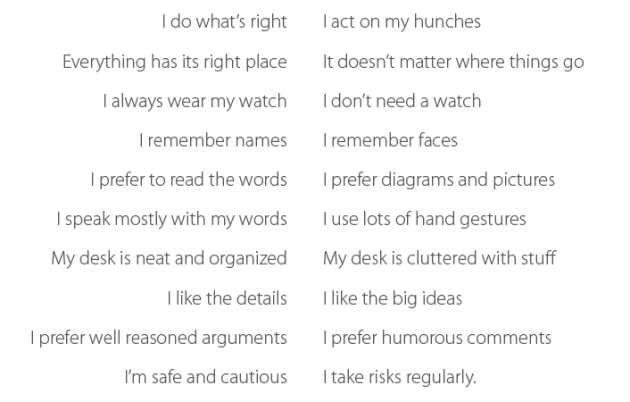
Note : This test is not from Pink’s book, it’s been adapted from several other sources.
RAP4 : Function AND Design
“It’s no longer sufficient to create a product, a service, an experience, or a lifestyle that’s merely functional. Today it’s economically crucial and personally rewarding to create something that is also beautiful, whimsical, or emotionally engaging.” P65
1 Pretty Ornamental
Good Design goes beyond mere ornament; it’s not about prettying things up. Design is everyday people creating solutions to every day problems. It requires the whole mind.
2 Differentiate or Die
Good design is more accessible than ever. Think Ikea and TV makeover shows. Now that we all have access to the same technology and can create items withe similar features, performance and price, design has become the key differentiator. Add value and stand out through good design.
3 Create New Markets
Design can create things we didn’t know we needed and, in effect, create new markets. Have you got a designer toaster? Cell phones started out as a luxury, became necessary for everyone, and now that we’ve all got one, have become accessorized to show our personalities.
4 Change the World
Design can help patients get better faster, build a healthy planet and lose elections. Investigations into the 2000 US Presidential elections showed it was the design of the ballots in Florida that invalidated so many votes and swung the election from Gore to Bush. If good design can change the world, so can bad.
Actions : Be a Designer
- Keep A Design Notebook : Take notes on good and dodgy design – start to notice what is being designed around you!
- Design Your Own : Sit down with a designer and design something, like a piece of furniture or your business card.
- Visit A Design Museum : Most major cities have them or, better still, take a trip to a world famous one! Think MOMA.
- Buy Design : Buy something designer. Start with something special under $45 – design is affordable.
- Get A Makeover : Start to relate to yourself as a piece of art and design your appearance. Style speaks.
RAP5: Argument AND Story
“When our lives are brimming with information and data, it’s insufficient to marshal an effective argument. Someone somewhere will inevitably track down a counterpoint to rebut your point. The essence of persuasion, communication and self-understanding has become the ability to fashion a compelling narrative.” P65-6.
Are You in the Story Business?
If you think stories are just for kids, then consider that 25% of the economy is based upon storytelling. Isn’t that what advertising, counselling, promotion and consulting is all about? Storytelling doesn’t replace left brain thinking, it adds to and complements it.
Facts Versus Stories
 Facts
Facts
- Easy : Google makes facts easily available and less valuable.
Stories
- Emotional : Stories are emotional, they move us in some way; facts are rational.
- Contextual : Stories are contextual; they give you a way to position and frame ideas.
- Unique : Stories are unique and personal; facts are commonplace, just ask Google.
- Interpret : Stories encourage us to interpret and think; facts aim to be the truth.
- Amuse : Stories can amuse and entertain; facts can only illuminate.
- Arrange : Stories help us organize our knowledge by creating context.
- Future : Stories are the chief way we look into the future. eg planning, daydreams.
- Memorable : Stories are effective because that’s how our brains remember things.
Actions : Create Stories
- Start Writing : What’s your story? Write a short story, a long book, a poem or a limerick.
- Read A Story : Grab a novel, curl up and lose your self on a deep couch or under a fragrant tree.
- Market Your Story : Create a Branding Breakthrough by telling your business story.
- Tell PR Stories : Give your story a spin and make it newsworthy so others will be interested.
- Present Your Story : Practise today; incorporate a story into your next presentation; charm your staff.
RAP6 : Focus AND Symphony
“Much of the Industrial and Information Ages required focus and specialization. But as white-collar work gets routed to Asia and reduced to software, there’s a new premium on the opposite aptitude: putting the pieces together, or what I call Symphony. What’s in greatest demand today isn’t analysis but synthesis – seeing the big picture and, crossing boundaries, being able to combine disparate pieces into an arresting new whole.” P66
Four Symphony Styles
- Conductor : The conductor’s role is to harness the individual instruments into a collective experience. That is your new mission. Become an entrepreneurial conductor who designs business systems and strategies.
- Inventor : The simplest way to invent something is to combine two separate things into a single new form. Blend unrelated concepts to create something new. How good is chilli chocolate; lemongrass vodka?
- Boundary Crosser : Become multi: multi-skilled, multi-disciplinary, use multimedia. Look for ways to borrow and learn from other fields.
- Metaphor Maker : Creating metaphors is a classic right brain activity where we see one thing through the eyes of another. Ask yourself… what do my customers see? For instance, what’s the metaphor for your product or service? Coffee = engine starter.
Actions : ‘Symphonize’
- Learn to Draw : Learn from Betty Edwards ‘Drawing on the Right Side of the Brain’. You don’t draw things; you draw the relationships between them.
- Study Relationships : Start mapping how different things connect, relate and fit together. To explore symphony, explore relationships.
- Mind Map : Learn Tony Buzan’s Mind Mapping tool for right brain planning & connecting ideas. Create strategies and take notes in a whole new way. Treasure!
- Visit McDonalds : Watch this remarkable business machine and other franchises in action. Systematize and strategize your business.
- Keep a Metaphor Log : Compile a list of the metaphors you encounter. Make up new ones. Rethink your business as a series of metaphors.
RAP7: Logic AND Empathy
“The capacity for logical thought is one of the things that makes us human. But in a world of ubiquitous information and advanced analytic tools, logic alone won’t do. What will distinguish those who thrive will be their ability to understand what makes their fellow woman or man tick, to forge relationships, and to care for others.” P66
Empathetic Focus
 Empathy
Empathy
- Inexactness : One can only ever approximate anothers mental state.
- Attention to the Big Picture : For example, what one thinks or feels about other people.
- Context : A person’s face, voice, actions and personal history are all essential when considering anothers mental state.
- No Expectations : What made her/him happy yesterday may not tomorrow. Hmmm…
“Empathy is the ability to imagine yourself in someone else’s position and to intuit what that person is feeling.” (P153) If you find yourself mirroring someone else’s yawning then you are being empathetic. Whilst studies show that women’s brains are hardwired for empathy, not all women have ‘female brains’. Some have ‘male brains’ that show a tendency for understanding which is not a feeling, it’s more a knowing. Daniel Goleman has presented the case that our emotional intelligence is now more important than our intellect in determining our success in life. He suggests, “People’s emotions are rarely put into words; far more often they are expressed through other cues. Just as the mode of the rational mind is words, the mode of the emotions is nonverbal.” (P156)
Actions : Be Empathetic
- Test Yourself : Take an Emotional Quotient (EQ) test online and find out about your inclinations. Then create a plan to expand your awareness.
- Create An Emotional Diary : Record how you are feeling at various times throughout your day. Use lots of ‘feeling’ words.
- Have A Heart 2 Heart : Take a break from life and discuss how you are feeling with a friend, colleague, coach or therapist.
- Volunteer : Put yourself in someone else’s shoes: work with or for those less fortunate than yourself and make a difference.
- Challenge Yourself : Notice how you feel at being out of your comfort zone when confronting fear. Who’s the person in the mirror? Really?
RAP8 : Seriousness AND Play
“Ample evidence points to the enormous health and professional benefits of laughter, lightheartedness, games and humour. There is a time to be serious, of course. But too much sobriety can be bad for your career and worse for your general well-being. In the Conceptual Age, in work and in life, we all need to play.” P66
Humour : New studies show humour is an accurate indicator of an effective manager; a manager who uses his emotional intelligence to steer the mood and emotions of his team to best effect. Humour is a right brain thinking process; it is creativity in action. Is it any wonder our left brain computers can’t replicate it?
- Games : Did you know the video game market is bigger than the motion picture industry? We want engagement, not passive playing. Games are one of the most powerful forms of learning supplying real role-play situations. We can use our knowledge, strategize and manipulate what we learn to best advantage.
- Fun : Henry Ford thought that work and play didn’t mix – workers were disciplined for laughing let alone playing. How times have changed! Southwest Airlines have suggested in their official mission statement, “People rarely succeed at anything unless they are having fun doing it.” P179
- Joyfulness : Are you happy? If the answer is ‘no’ that might not be a bad thing. Happiness is conditional. In other words, we are only happy when something favourable happens. It is far better to be joyful. Joyfulness is unconditional; we can be joyous for the sake of it. The Dalai Lama is the patron of joy. Create yours!
“The opposite of play isn’t work. It’s depression.” Brian Sutton-Smith P179.
Actions : Play More!
- Learn From Kids : Our age limit for playing is in our heads! Watch children to learn how – again.
- Start Laughing : Join a laughter club, start your own, watch a comedy or just start laughing. Try it!
- ‘Be Different’ Day : Once a month deliberately step out of your routine and explore the new. We dare you!
- Chore Games : Dance while you dust, sing while you sweep and warble while you weed. Turn the routine into fun.
- Joke File : Start a joke file and collect funny stories and cartoons. to share with your friends, audience and colleagues. Sparkle!
RAP9 : Accumulation AND Meaning
“We live in a world of breathtaking material plenty that has freed hundreds of millions of people from day-to-day struggles and liberated us to pursue more significant desires: purpose, transcendence and spiritual fulfilment.” P66-7.
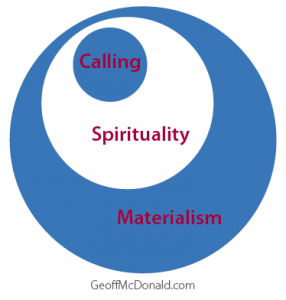
According to Ian Mitroff, Spirituality is “the basic desire to find purpose and meaning in one’s life” and it is gaining value in business. (P214) Spirituality in business takes on many forms ranging from the provision of ‘spirit’ services such as yoga or meditation, through ‘environmental’ retail such as The Body Shop and Corporate Social Responsibility.
If you didn’t need the money, would you continue doing your current work? Thought not. Imagine living in harmony, being calm and relaxed at work; loving the work you do. A Calling is work that satisfies. We do it for its own sake and not for the dollars or other benefits. Martin Seligman proposes happiness comes from knowing that you are working in your strengths and preferences in the service of the greater good. (P217)
Actions : Create Meaning
- Gratitude Journal : Every day write down at least one thing that you are grateful for, notice how it changes over of time.
- Read Some Happiness : Find books on happiness: Seligman’s Authentic Happiness or C.S. Lewis’s Narnia; kids books.
- Read Some Meaning : A great place to start is with Victor Frankl’s Man’s Search for Meaning or anything by the Dalai Lama.
- Find Your Calling : Do what really turns you and turn your hobby into your career. Earn your living from your passion.
- Define Your Legacy : What do you want to leave behind after you die? How will others see your lifes contribution? Start today.
More…
- More from Book Rapper
- If you want our beautifully designed pdf copy click here. Plus audio and video.
- Buy A Whole New Mind on Amazon
- Daniel Pink’s Website

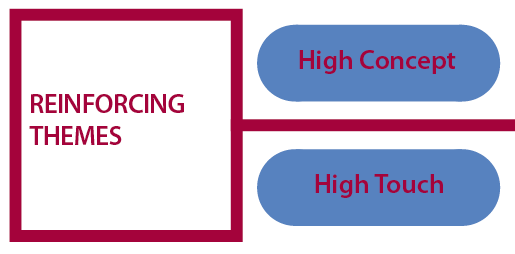
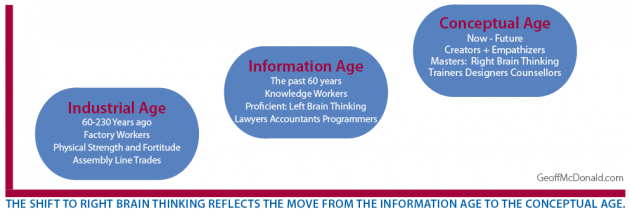
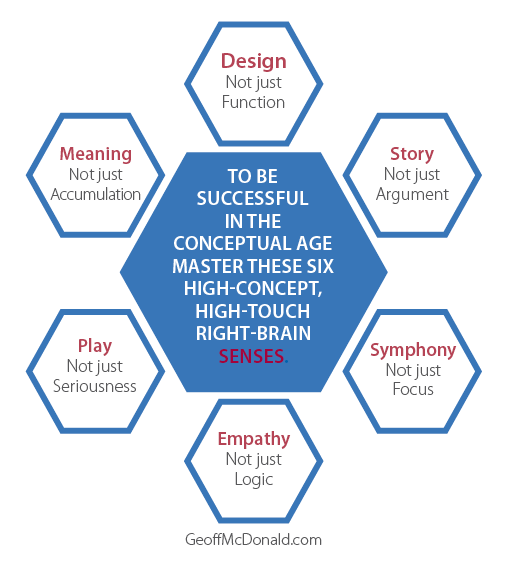
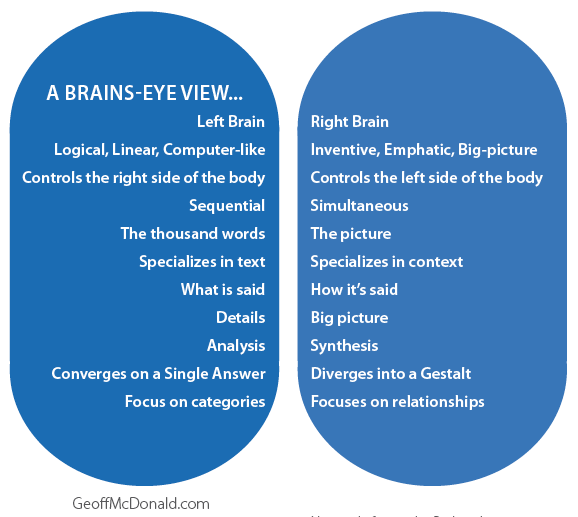
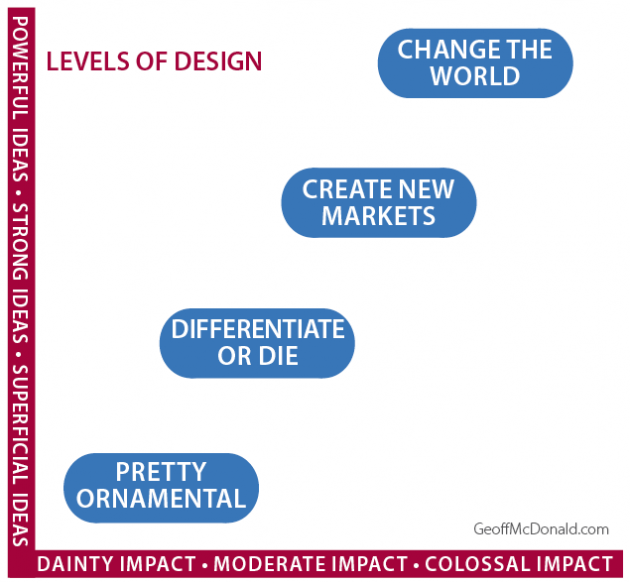
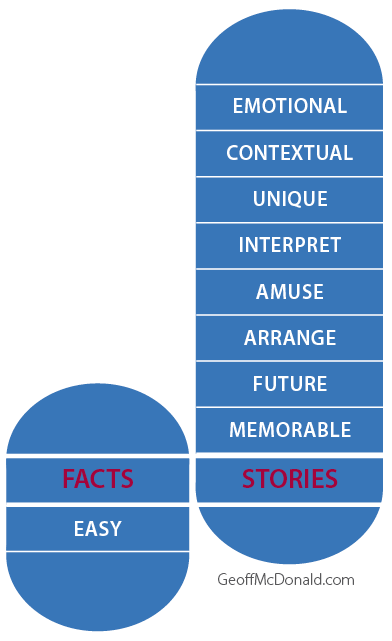 Facts
Facts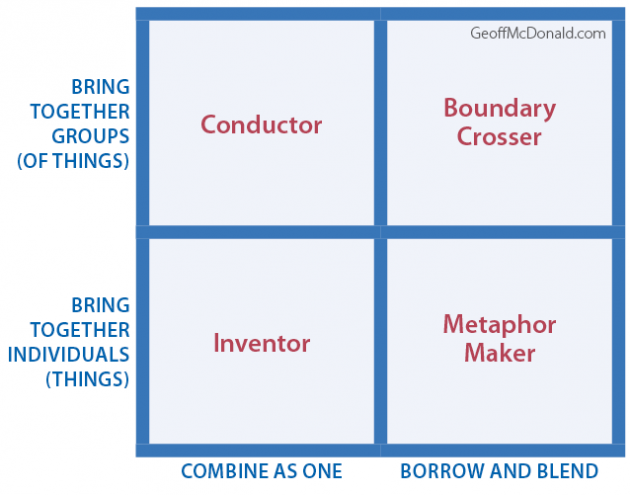
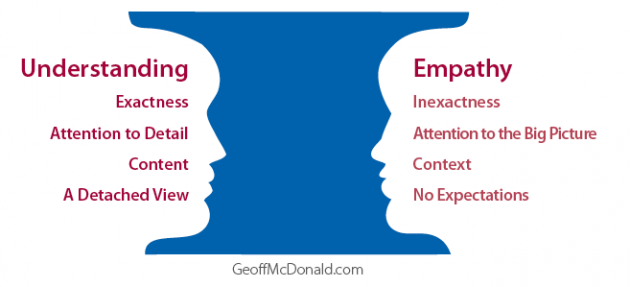 Empathy
Empathy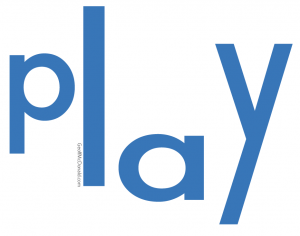 Humour : New studies show humour is an accurate indicator of an effective manager; a manager who uses his emotional intelligence to steer the mood and emotions of his team to best effect. Humour is a right brain thinking process; it is creativity in action. Is it any wonder our left brain computers can’t replicate it?
Humour : New studies show humour is an accurate indicator of an effective manager; a manager who uses his emotional intelligence to steer the mood and emotions of his team to best effect. Humour is a right brain thinking process; it is creativity in action. Is it any wonder our left brain computers can’t replicate it?
